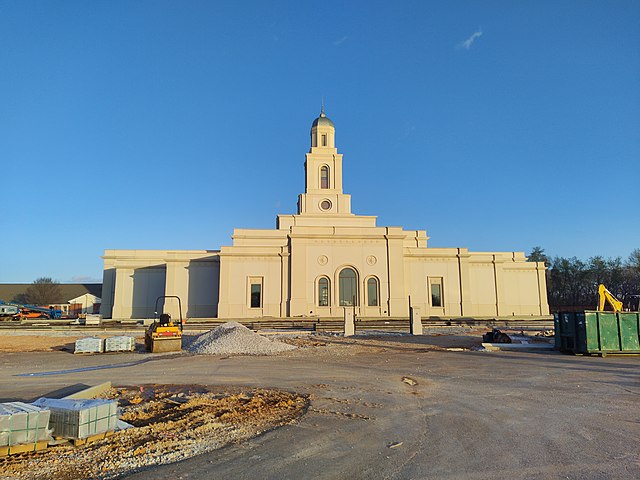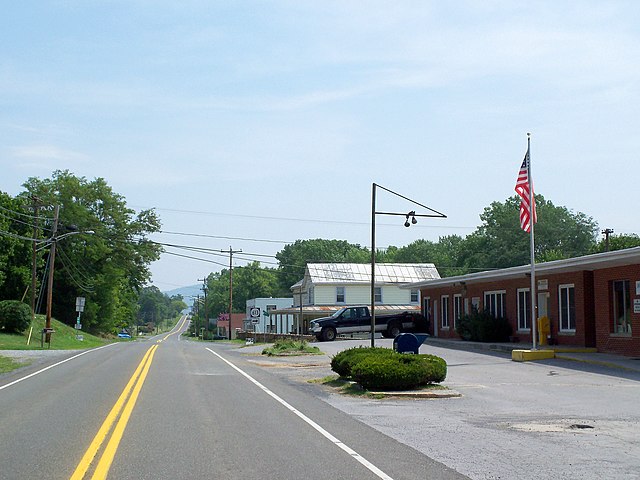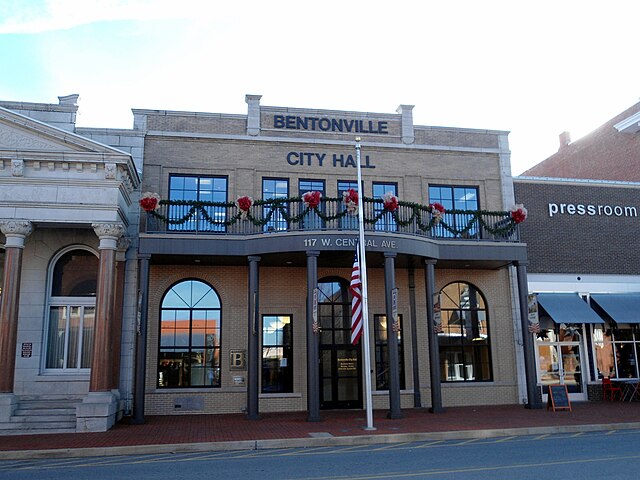Are you planning a trip to Bentonville, Arkansas, or considering making this charming city your home? Understanding the local weather patterns is crucial for making the most of your experience. Bentonville’s climate offers something special in every season, from vibrant spring blooms to cozy winter days perfect for museum hopping.
Located in the heart of Northwest Arkansas, Bentonville experiences a humid subtropical climate that brings distinct seasonal changes. Whether you’re here for the world-famous Crystal Bridges Museum, the mountain biking trails, or the booming business scene, knowing what weather to expect will help you pack right and plan better.
Understanding Bentonville’s Climate Zone
Bentonville sits in what meteorologists classify as a humid subtropical climate zone (Köppen climate classification Cfa). What does this mean for you? Think of it as the perfect middle ground – not too extreme in any direction, but with enough variation to keep things interesting.
This climate type brings hot, humid summers and mild to cool winters. The city experiences all four seasons distinctly, with spring and fall often considered the most pleasant times of year. The Arkansas River Valley’s geography plays a significant role in moderating extreme weather conditions, though the city isn’t immune to the occasional severe weather event.
The Ozark Mountains to the south and the Missouri border to the north create a unique microclimate that can sometimes differ from weather patterns in other parts of Arkansas. This positioning means Bentonville often experiences slightly cooler temperatures than central Arkansas cities like Little Rock.
Spring Weather in Bentonville (March-May)
Spring in Bentonville is nothing short of magical. As the city awakens from winter’s embrace, you’ll witness one of nature’s most spectacular transformations. The season brings mild temperatures, increasing daylight hours, and the famous Arkansas wildflower displays that paint the landscape in brilliant colors.
During spring, average temperatures gradually climb from the 50s in early March to the comfortable 70s by late May. This season is characterized by variable weather patterns – you might experience a warm, sunny day followed by a cool, rainy evening. It’s the season of renewal, both for nature and for outdoor activities that have been hibernating through winter.
What to Expect in March
March serves as winter’s farewell and spring’s grand entrance. Early March can still feel quite chilly, with morning temperatures often dipping into the 30s and 40s. However, by month’s end, you’ll notice those telltale signs of spring: budding trees, returning birds, and temperatures that make you want to shed that heavy winter coat.
Average high temperatures in March range from 58°F to 65°F, while nighttime lows typically fall between 37°F and 43°F. Rainfall is moderate, averaging about 3.5 inches throughout the month. March can be unpredictable – one day might feel like winter’s last stand, while the next hints at summer’s eventual arrival.
The month often brings what locals call “Arkansas weather” – rapid changes that keep you guessing. Smart residents learn to dress in layers and keep both a light jacket and shorts handy. March is also when severe weather season begins to ramp up, so it’s wise to stay weather-aware.
April Weather Patterns
April is when Bentonville truly begins to shine. This month consistently ranks among locals’ favorites, offering that perfect balance of warmth without the oppressive humidity that summer brings. It’s sweater weather in the mornings and t-shirt weather by afternoon – absolutely perfect for exploring the city’s numerous outdoor attractions.
Temperatures in April are delightfully mild, with highs averaging between 68°F and 72°F. Nighttime temperatures settle into the comfortable range of 45°F to 50°F. Rainfall increases slightly to about 4 inches, often coming in the form of gentle spring showers that nourish the emerging plant life.
This is prime time for visiting Crystal Bridges’ outdoor trails or exploring the extensive mountain bike trail system. The weather is ideal for festivals and outdoor events, which is why many of Bentonville’s signature celebrations are scheduled during this month. April weather makes everyone want to spend more time outdoors.
May Climate Conditions

May represents spring at its absolute peak in Bentonville. The month offers consistently pleasant weather that makes locals fall in love with their city all over again. Temperatures are warm but not yet oppressive, humidity levels remain manageable, and the natural world displays its full spring glory.
High temperatures in May typically range from 76°F to 80°F, while nighttime lows hover around 55°F to 60°F. This temperature range is practically perfect for any outdoor activity you can imagine. May receives about 4.5 inches of rainfall, often in the form of afternoon or evening thunderstorms that clear quickly and leave fresh, clean air behind.
The month marks the transition toward summer, so you might notice the first hints of the humidity that will characterize the coming months. However, May’s humidity levels remain comfortable for most people. This is an excellent time for hiking, biking, outdoor dining, and exploring Bentonville’s many parks and green spaces.
Summer Weather in Bentonville (June-August)
Summer in Bentonville means warm days, active outdoor recreation, and the kind of weather that makes you appreciate air conditioning. While temperatures rise significantly from spring levels, the season offers its own unique pleasures: longer daylight hours, vibrant green landscapes, and perfect conditions for water activities.
The summer months bring average highs in the 80s and 90s, accompanied by increased humidity levels that can make temperatures feel even warmer. Afternoon thunderstorms become more common, often providing welcome relief from the heat and contributing to the lush, green environment that characterizes the region.
Despite the heat, summer is a popular time for tourists and outdoor enthusiasts. Early morning and evening hours offer the most comfortable conditions for outdoor activities, while midday is perfect for indoor attractions like museums and shopping.
June: Early Summer Warmth
June ushers in summer with enthusiasm, bringing noticeably warmer temperatures and longer days. The month represents the transition from spring’s mild comfort to summer’s energetic warmth. Most residents adapt quickly to the temperature change, adjusting their daily routines to make the most of cooler morning and evening hours.
Average high temperatures in June climb to 83°F to 87°F, while overnight lows settle into the pleasant range of 62°F to 66°F. The temperature differential between day and night becomes less pronounced than in spring months. Humidity begins to increase, though it’s not yet at peak summer levels.
June typically receives about 3.5 inches of rainfall, often delivered through afternoon and evening thunderstorms. These storms can be spectacular displays of nature’s power, featuring dramatic lightning shows and heavy downpours that cool the air temporarily. The storms are usually brief but intense, clearing to reveal refreshed landscapes and cooler temperatures.
July: Peak Summer Heat
July stands as Bentonville’s warmest month, earning its reputation as the height of summer. This is when the city’s humid subtropical climate shows its full character, with hot days and warm, humid nights. While the heat can be intense, many residents and visitors find ways to embrace and enjoy this energetic season.
High temperatures in July average between 89°F and 92°F, with some days reaching into the upper 90s. Nighttime temperatures provide limited relief, typically dropping only to the low to mid-70s. The heat index – which combines temperature and humidity – can make conditions feel even warmer, sometimes pushing into triple digits during the hottest parts of the day.
Rainfall in July averages about 3 inches, though distribution can be uneven. The month might feature extended dry periods punctuated by intense thunderstorms. These summer storms can be dramatic affairs, sometimes producing heavy rain, strong winds, and impressive lightning displays. Smart residents plan outdoor activities for early morning or evening hours when temperatures are more manageable.
August: Late Summer Conditions
August continues July’s heat while often adding even higher humidity levels. Many locals consider August the most challenging month weather-wise, as the cumulative effect of summer heat begins to wear on both people and infrastructure. However, August also offers some of summer’s most beautiful moments, particularly during those magical golden hours just after sunset.
Temperatures in August remain stubbornly high, with averages similar to July: highs in the upper 80s to low 90s and lows in the low 70s. What makes August particularly challenging is the humidity, which can make temperatures feel significantly hotter than the actual reading. Heat indices over 100°F are not uncommon during peak afternoon hours.
August rainfall averages about 2.5 inches, making it one of the drier months of the year. This combination of heat and reduced rainfall can stress vegetation and make outdoor activities particularly challenging during midday hours. However, late August sometimes brings hints of the coming seasonal change, with occasional cooler mornings that remind everyone that fall isn’t far away.
Fall Weather in Bentonville (September-November)
Fall in Bentonville is pure magic – a season that draws visitors from across the country to witness the spectacular autumn color display. As summer’s heat gradually gives way to crisp, comfortable temperatures, the region transforms into a photographer’s paradise of golden, red, and orange hues.
This season offers some of the year’s most perfect weather conditions. Temperatures become increasingly comfortable, humidity levels drop, and the number of clear, sunny days increases dramatically. Fall is outdoor activity season in its truest form, when hiking, biking, and simply being outside become pure pleasure again.
The transition from summer to winter happens gradually, giving residents and visitors time to savor each phase of the seasonal change. Early fall retains some summer warmth, mid-fall brings perfect temperatures, and late fall offers crisp air that hints at winter’s approach.
September: Early Fall Transition
September serves as summer’s graceful exit and fall’s gentle entrance. The month often begins with summer-like conditions but gradually transitions to more comfortable temperatures and lower humidity levels. It’s a month of subtle changes that collectively create a dramatic shift in how the weather feels.
High temperatures in September start in the mid-80s and gradually decline to the upper 70s by month’s end. Nighttime lows begin in the upper 60s and drop to the comfortable mid-50s. This increasing temperature differential between day and night signals the changing season and contributes to the spectacular color changes in the foliage.
September receives about 3 inches of rainfall, typically less concentrated than summer’s intense thunderstorms. Instead, the month often features gentler, longer-lasting rain events that water the landscape without the drama of summer storms. September weather is generally stable and pleasant, making it an excellent time for outdoor festivals and events.
October: Perfect Fall Weather
October represents peak fall conditions in Bentonville – the month that makes residents feel grateful to live in Arkansas. Temperatures are ideal for any outdoor activity, humidity levels drop to comfortable ranges, and the famous Ozark Mountain foliage reaches its spectacular peak.
High temperatures in October range from 75°F in early October to around 65°F by month’s end. Nighttime lows drop from the mid-50s to the low 40s, creating that perfect fall sleeping weather that requires just a light blanket. The large temperature swing between day and night contributes to the stunning color changes in the leaves.
October is typically one of the drier months, receiving only about 2.5 inches of rainfall. This drier pattern, combined with cooler temperatures, creates ideal conditions for hiking, camping, mountain biking, and other outdoor pursuits. The weather is so consistently pleasant that many outdoor enthusiasts consider October the best month of the year for their activities.
November: Late Fall Patterns
November brings fall’s final act before winter takes center stage. The month features increasingly cool temperatures, shorter daylight hours, and the last of the spectacular fall colors. While temperatures continue to drop, November often provides many beautiful, crisp days perfect for outdoor activities.
Early November high temperatures hover around 60°F, dropping to the low 50s by month’s end. Nighttime temperatures begin in the low 40s and can dip into the 30s during the final weeks. These cooler temperatures signal trees to complete their color change and begin dropping their leaves.
November receives about 3 inches of rainfall, often in the form of steady, soaking rains rather than the brief thunderstorms of warmer months. These rain events help prepare the landscape for winter while providing the moisture needed for spring’s eventual return. The month can also bring the first frost of the season, typically occurring during the final weeks.
Winter Weather in Bentonville (December-February)

Winter in Bentonville offers a completely different character from the other seasons – quieter, more contemplative, but no less beautiful. While temperatures drop significantly from fall levels, the season rarely brings the harsh, extended cold snaps found in more northern climates.
Bentonville’s winters are generally mild compared to other regions at similar latitudes. Snow is possible but not guaranteed every year, and when it does occur, it typically melts within a few days. This moderate winter weather makes the city attractive to those seeking a less severe cold season while still experiencing true seasonal change.
December: Early Winter
December marks winter’s official beginning, though early December often retains some fall-like characteristics. The month brings noticeably shorter days, cooler temperatures, and the first real possibility of freezing weather. Holiday decorations seem especially appropriate against the backdrop of bare trees and crisp air.
High temperatures in December average between 45°F and 50°F, while nighttime lows drop into the 25°F to 30°F range. December receives about 2.5 inches of precipitation, which can fall as rain, sleet, or occasional snow. The month’s weather can be quite variable, ranging from mild, pleasant days to truly cold snaps that remind everyone winter has arrived.
January: Coldest Month
January represents winter at its most pronounced in Bentonville. This is typically the year’s coldest month, though temperatures rarely reach the extreme lows found in northern states. January weather encourages indoor activities and cozy evenings, making it perfect for exploring Bentonville’s excellent museums and restaurants.
Average high temperatures in January range from 42°F to 45°F, while nighttime lows average between 22°F and 25°F. The month typically receives about 2 inches of precipitation. Snow is possible but not guaranteed – some January months pass without any snow, while others might bring one or two light snow events.
February: Late Winter
February serves as winter’s final chapter before spring begins its gradual return. The month often features the season’s most unpredictable weather, with some days feeling distinctly winter-like while others hint at the coming spring. This variability makes February an interesting month weather-wise.
High temperatures in February average between 48°F and 52°F, while nighttime lows range from 27°F to 31°F. The month receives about 2.5 inches of precipitation. February can bring late-season snow events, but it can also feature surprisingly mild days that make you want to start planning spring outdoor activities.
Bentonville Weather Extremes and Records
Understanding Bentonville’s weather extremes helps provide context for the typical patterns described above. While the city enjoys generally moderate weather, it has experienced some notable extremes that demonstrate the power of natural weather systems.
The highest temperature ever recorded in Bentonville reached 114°F, while the lowest dropped to -12°F. These extremes are rare – most years never approach either record. The city has experienced significant weather events including ice storms, severe thunderstorms, and occasional tornadoes, though major severe weather events are relatively infrequent.
These extreme events remind residents and visitors to stay weather-aware, particularly during severe weather seasons in spring and early summer. Modern forecasting and warning systems provide excellent advance notice of potentially dangerous weather conditions.
Best Times to Visit Bentonville Based on Weather
If you’re planning a visit to Bentonville, timing can significantly impact your experience. Based purely on weather conditions, the optimal visiting periods are April through May and September through October. These months offer the most consistently pleasant conditions with mild temperatures, manageable humidity, and generally stable weather patterns.
Spring visits (April-May) provide the advantage of seeing the region in full bloom, with wildflowers, flowering trees, and fresh green foliage creating a beautiful backdrop for outdoor activities. Fall visits (September-October) offer spectacular autumn colors and arguably the year’s most perfect weather conditions.
Summer visits are certainly possible and can be enjoyable with proper planning. Focus on early morning and evening activities, take advantage of air-conditioned indoor attractions during peak heat hours, and always stay hydrated. Winter visits offer a completely different experience – fewer crowds, cozy indoor attractions, and the possibility of seeing Bentonville dressed in snow.
Weather-Related Activities in Bentonville
Bentonville’s diverse weather patterns create opportunities for different activities throughout the year. Spring and fall offer ideal conditions for the city’s extensive mountain biking trail system, consistently ranked among the world’s best. These seasons are also perfect for exploring the outdoor portions of Crystal Bridges Museum and the numerous parks and green spaces.
Summer’s longer daylight hours make it ideal for extended outdoor adventures, though timing becomes crucial. Early morning bike rides, evening festivals, and water-related activities work well during the hot months. Summer is also perfect for exploring indoor attractions during the heat of the day.
Winter weather creates opportunities for cozy indoor activities. The city’s world-class museums, art galleries, restaurants, and shopping venues provide excellent cold-weather entertainment. Occasional snow creates beautiful scenes and rare opportunities for winter sports activities.
How Climate Change Affects Bentonville Weather

Like many locations worldwide, Bentonville is experiencing subtle changes in its weather patterns that may be related to broader climate change trends. Local meteorologists have noted slight increases in average temperatures over recent decades, as well as changes in precipitation patterns.
These changes are generally gradual and may not be immediately obvious to casual observers. However, they’re significant enough to interest climate scientists and local planners who consider long-term weather trends when making infrastructure and development decisions.
Understanding these evolving patterns helps explain why some residents notice that winters seem milder than they remember from decades past, or why certain plants that once struggled in the local climate now thrive. These changes are part of larger regional and global weather pattern shifts.
Conclusion
Bentonville’s weather offers something for everyone throughout the year. From spring’s gentle awakening to summer’s energetic warmth, fall’s spectacular beauty, and winter’s quiet charm, each season brings its own character and opportunities. The city’s humid subtropical climate creates a pleasant environment that supports both outdoor recreation and comfortable indoor living.
Understanding these weather patterns helps you make the most of your time in Bentonville, whether you’re planning a short visit or considering making this dynamic city your home. The moderate climate, combined with distinct seasonal changes, creates an environment where you can enjoy outdoor activities year-round while still experiencing the beauty of changing seasons.
Remember that weather can be unpredictable, so staying informed through local forecasts and being prepared for changing conditions will help ensure your Bentonville experience is always positive, regardless of what Mother Nature decides to serve up.
Frequently Asked Questions
Q: What is the rainiest month in Bentonville?
A: May typically receives the most rainfall in Bentonville, averaging about 4.5 inches. Spring months generally see increased precipitation due to more active storm systems and the transition from winter to summer weather patterns.
Q: Does Bentonville get snow every winter?
A: Snow is not guaranteed every winter in Bentonville. The city typically sees light snow events once or twice per winter season, but some years may pass with no snow at all. When snow does occur, it usually melts within a few days due to the relatively mild winter temperatures.
Q: What’s the most comfortable time of year to visit Bentonville?
A: April through May and September through October offer the most consistently comfortable weather conditions. These periods feature mild temperatures, lower humidity, pleasant breezes, and generally stable weather patterns that are ideal for outdoor activities and sightseeing.
Q: How hot does it get in Bentonville during summer?
A: Summer high temperatures in Bentonville typically range from the mid-80s to low 90s Fahrenheit. July is usually the hottest month, with average highs around 89-92°F. Combined with humidity, the heat index can make it feel like temperatures are in the upper 90s or even above 100°F on the hottest days.
Q: Is severe weather common in Bentonville?
A: While Bentonville can experience severe weather including thunderstorms, hail, and occasional tornadoes, major severe weather events are relatively infrequent. The city is located in a region that sees some severe weather activity, particularly during spring and early summer, but advanced warning systems provide excellent notice of potentially dangerous conditions.

